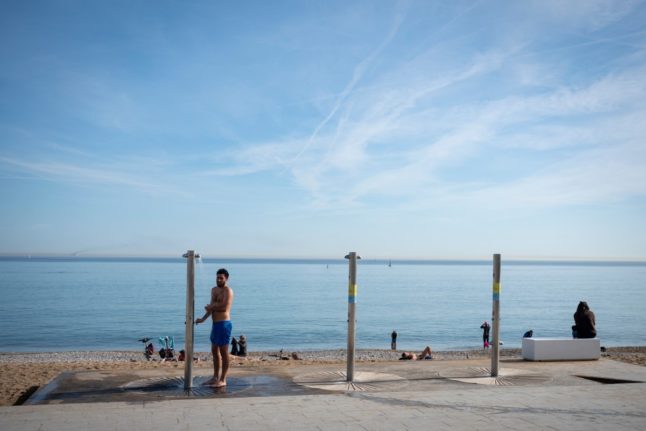The head of the regional government of Catalonia, Pere Aragonès, announced the step after reservoirs in the Mediterranean region fell below 16 percent of their capacity.
That level is the benchmark set by the authorities for the application of a new round of water-saving measures that will affect some six million people.
“Catalonia is suffering the worst drought in the last century, we have never faced such a long and intense drought since rainfall records began,” Aragonès told a news conference.
MAP: Where are the water restrictions in Catalonia?
The emergency aims to lower the daily amount of water permitted for residential and municipal purposes from 210 to 200 litres (55 to 52 gallons) per person. For context, a 10-minute showers uses on average 200 litres of water.
If the drought worsens, it could be lowered to 180 litres, and then 160 litres.
The water use restrictions will apply to Barcelona and 201 surrounding municipalities from Friday and they include a ban on filling private swimming pools and washing cars unless it is with recycled water.
Public gardens can only be irrigated with groundwater.
READ ALSO: ‘Hard to live like this in 2024’ – How drought is affecting Catalonia
Agriculture and industry will face greater cuts. The emergency declaration aims to reduce water for crop irrigation by 80 percent and for industry by 25 percent.
Several heatwaves recorded in Spain and wider Europe last summer worsened the drought, lowering reservoirs’ levels as water evaporation and consumption increased.
The unusually warm weather has continued into 2024, with the mercury rising to nearly 30 degrees Celsius (86 Fahrenheit) in some regions in January — temperatures usually seen in June.
Experts say climate change driven by human activity is boosting the intensity and frequency of extreme weather events, such as heatwaves, droughts and wildfires.
READ ALSO: Cities in Spain’s Andalusia set to have water restrictions over summer



 Please whitelist us to continue reading.
Please whitelist us to continue reading.
Member comments